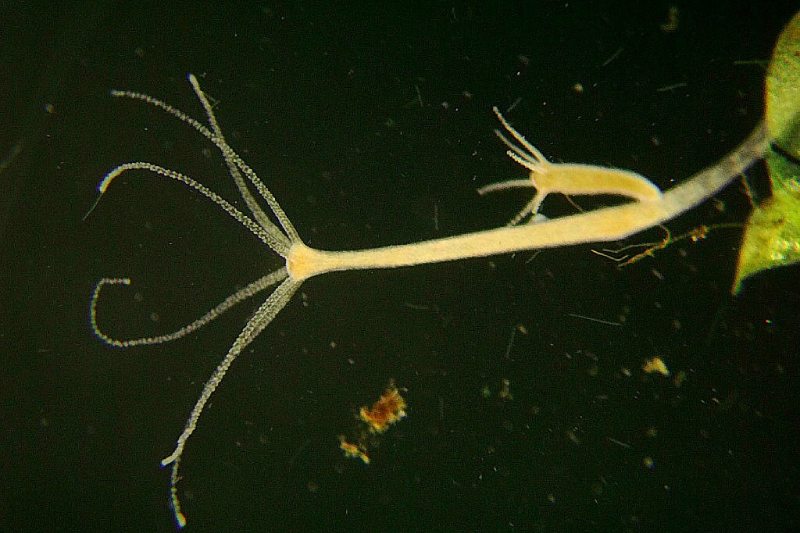A recent study on jellyfish-like creatures called hydras has unveiled an intriguing phenomenon: when overfed, these tiny freshwater organisms can develop transmissible tumors that can be passed on to their clone offspring. This discovery not only enhances our understanding of tumor development in hydras but also provides valuable insights into the broader study of contagious cancers. While cancer is a common threat among multicellular organisms, few cases involve tumors spreading between individuals.
Transmissible cancers have been notably observed in species like Tasmanian devils, dogs, and various bivalves. Scientists are eager to investigate how these cancers spread to help prevent them in humans and other animals. For instance, Tasmanian devils are severely impacted by a facial tumor disease that endangers their population.
Rapid Reproduction Linked to Tumor Growth
However, identifying new instances of contagious cancer can be difficult. This challenge prompted evolutionary ecologist Sophie Tissot from the French National Centre for Scientific Research and her team to explore the issue from a fresh perspective. Fifteen years ago, hydras in a lab setting developed tumors after being overfed, presenting a unique opportunity for further research.
Hydra oligactis, which reproduces asexually by cloning, is particularly valuable for cancer studies. These hydras can form tumors in controlled environments, providing insights into the genetic mechanisms behind cancer. Tissot and her colleagues aimed to highlight the significance of studying hydras to understand the evolution of transmissible cancers.
The research involved collecting 50 hydras from Montaud Lake in France and recreating lab conditions that had previously led to tumor development. Some hydras were overfed, and within two months, many had developed tumors. The researchers then traced how these tumors were transmitted through five generations of hydra clones, confirming that tumors could be passed on and even increased over time.
Environmental Factors and Cancer Spread
Interestingly, the team discovered that hydras with transmissible tumors began reproducing more rapidly before the tumors were fully formed, potentially as a survival strategy. Tumor-carrying hydras produced more buds early in the process, though these buds had higher mortality rates once tumors appeared. This may indicate an adjustment in life history to counterbalance the costs associated with tumor growth.
The researchers concluded that while transmissible cancers are rare, environmental factors might significantly influence their spread. Human activities could disrupt ecosystems, creating conditions that facilitate the transmission of these cancers.
